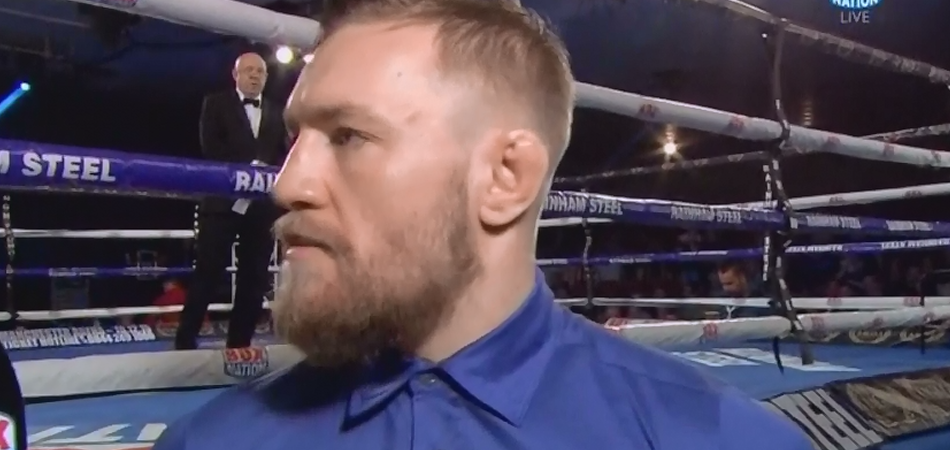After multiple reports, the UFC officially announced on Tuesday that at UFC 197 Conor McGregor would be the next challenger for Rafael dos Anjos’ lightweight championship. This will mark just the second time in the company’s history that an active champion will switch weight classes and challenge for another divisional title – with 155 pound champion BJ Penn challenging for Georges St. Pierre’s 170 pound title at UFC 94 being the only other. It’s a super-fight, and super-fights aren’t easy to make, and, in my humble opinion, the UFC were right in making it.
You have to applaud the Ultimate Fighting Championship for the fights that they manage to make. Aside from some notable exceptions, the company isn’t in the business of padding records – especially at the highest level. Champions, generally, are not given a break, and even when the challenger may not be considered the ‘real’ number one contender they are usually worthy challenges; see Robbie Lawler vs. Carlos Condit at UFC 195.
However, when it relates to super-fights the company must be given a failing grade.
The UFC haven’t managed to make the majority, if any, of the super-fights proposed over the last number years: Anderson Silva vs. George St. Pierre, Anderson Silva vs. Jon Jones, Cain Velasquez vs. Jon Jones and Fedor Emelianenko vs. Brock Lesnar just to name a few. Although the definition of a ‘super-fight’ can alter from person to person, the fights proposed above would have surely been categorised as such, as should Conor McGregor vs. Rafael dos Anjos.
The UFC’s failure in booking these mega fights was something discussed by heavyweight contender Travis Browne during a media scrum for UFC Fight Night: Dillashaw vs. Cruz.
“Why not, you know what I mean. He’s done everything else. Why not let him have this? It’s a great super-fight. There’s been nothing but rumours about super-fights in the past that could of happened, should have happened, wish they would have happened five or ten years before. It’s like, man, strike while the iron is hot.”
Strike while the iron is hot, indeed.
The UFC has pussyfooted around super-fights in the past, putting stipulations on what needed to happen before they could book the fight; X needed to beat Y, and then Y needed to beat X. Murphy’s Law usually reared its ugly head on those occasions. It happened all too often, leaving us to wonder why the fights weren’t just made before a spanner was thrown in the works.
That’s not to say that making super-fights is as simple as the UFC telling the participants that they are fighting and that’s that. Of course not, but from the outside looking in it seemed as though they weren’t doing their utmost to accommodate the potential fights, especially in the Anderson Silva vs. George St. Pierre situation.
However, as mentioned, the entirety of the blame cannot be put on the UFC as a promotor. You have to have two willing parties. You can’t force somebody to sign a contract against their will. That’s not the world that we live in. The argument could be made that the UFC could have done more in certain situations to entice these fighters – a truckload of money may have done it – but because we don’t know what was offered to the likes of Anderson Silva and Georges St. Pierre there’s no reason to speculate.
Either way, the promotion didn’t dilly-dally this time around. Sure, there were initial worries that the fight might not happen due to pay demands – and if this was 2010 maybe that would have been a major obstacle – but not in 2016 it seems. It certainly helps that they have two parties who seem to relish the opportunity of stepping inside the cage opposite each other. But the promotion could have made it difficult for themselves like before, but they didn’t. They made the fight and should be commended for that.
There was no X needs to beat Y. The iron was hot and they struck. Bravo.
Robert Pallin is the host of Obviously Fight Talk podcast on radiomade.ie. You can also check them out on Facebook and Twitter.
